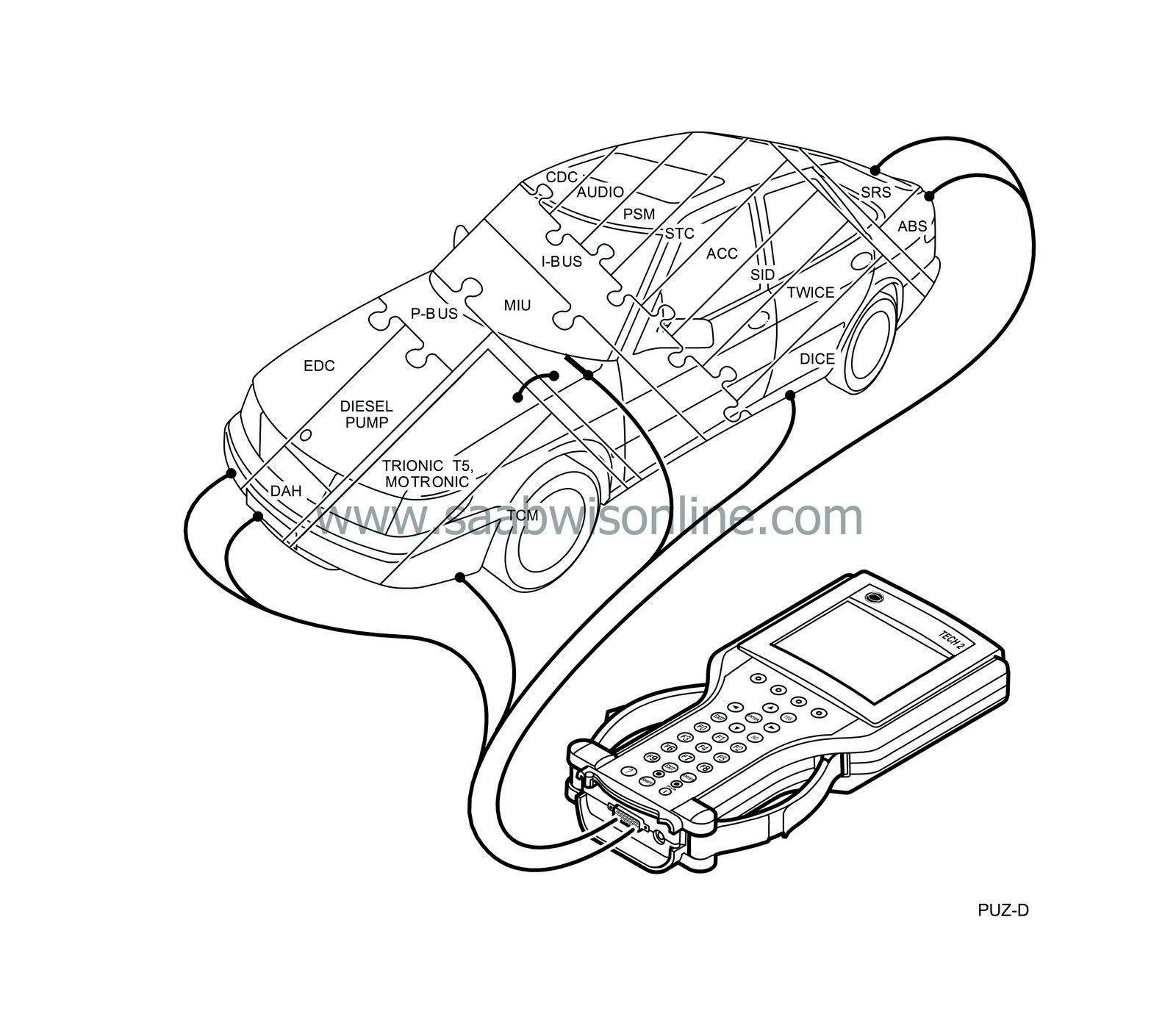Brief description
| Brief description |
| General |
A mobile telephone connection is fitted as standard in the car including power supply for charging the telephone battery. The sound from the selected source is automatically switched off during a telephone call and the sound from the telephone (line in) is heard instead. The volume of the telephone can be preset but is also adjustable during the call.
As an option, a mobile phone connection with “handsfree” function is available. Handsfree means that a call can be taken without lifting the receiver.
When a phone is connected “handsfree”, the incoming telephone sound is transferred to the audio system. At the same time, the normal sound is switched off. The outgoing sound is picked up via a built-in microphone in the car.
The following units in the audio system are used:
| • |
Main unit, Audio System
|
|
| • |
SID (display)
|
|
| • |
External amplifier (only AS3)
|
|
| • |
Loudspeakers
|
|
| • |
Steering wheel controls
|
|
| • |
Telephone connection
|
|
| Main Unit |
The main unit for the telephone system is the audio system main unit.
| Display |
The telephone system uses SID to indicate that it is active. The display information is sent on the bus from the audio system and read by SID.
| External Amplifier (AS3) |
Audio System 3 has an external amplifier with two output channels for loudspeakers in the front doors to reproduce the incoming telephone sound during a call.
| Loudspeakers |
The audio system has side loudspeakers in the dashboard and loudspeakers in the parcel shelf. Audio System 3 also included bass loudspeakers in the front doors. These can reproduce the telephone sound during a call.
| Steering wheel controls |
The volume of the incoming telephone sound can be easily and safely adjusted with the controls on the steering wheel.
The controls are connected to the SID unit. SID detects the positions of the controls and sends information via the bus to the main unit.
| P-bus and I-bus |

The two power train systems EDC and diesel pump are not connected to the I-bus, however. These systems require much faster communication to eliminate noticeable delays, e.g. engine torque limitation when changing gear.
They are therefore connected by a separate bus called the P-bus (Powertrain Bus). Communication on the P-bus is ten times faster than on the I-bus.
The P-bus is also connected to the MIU (Main Instrument Unit). The MIU ensures that the information that is available on one bus is also available on the other.


